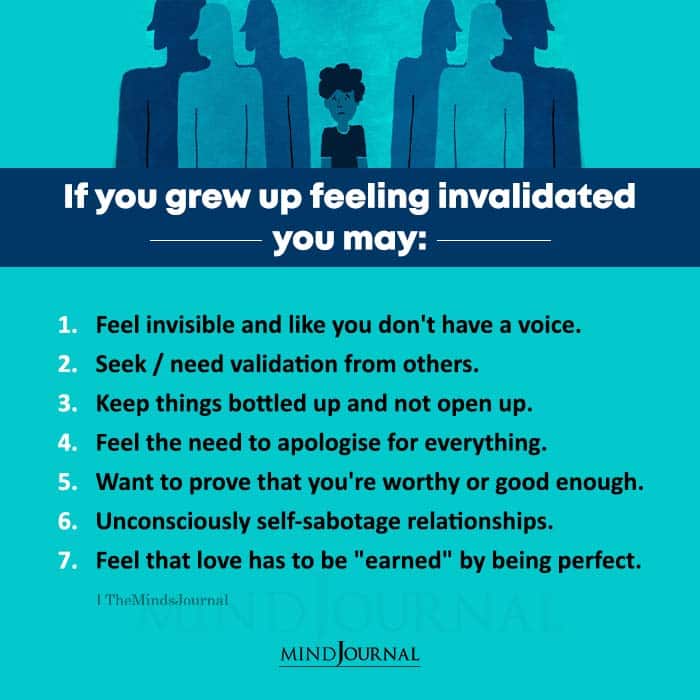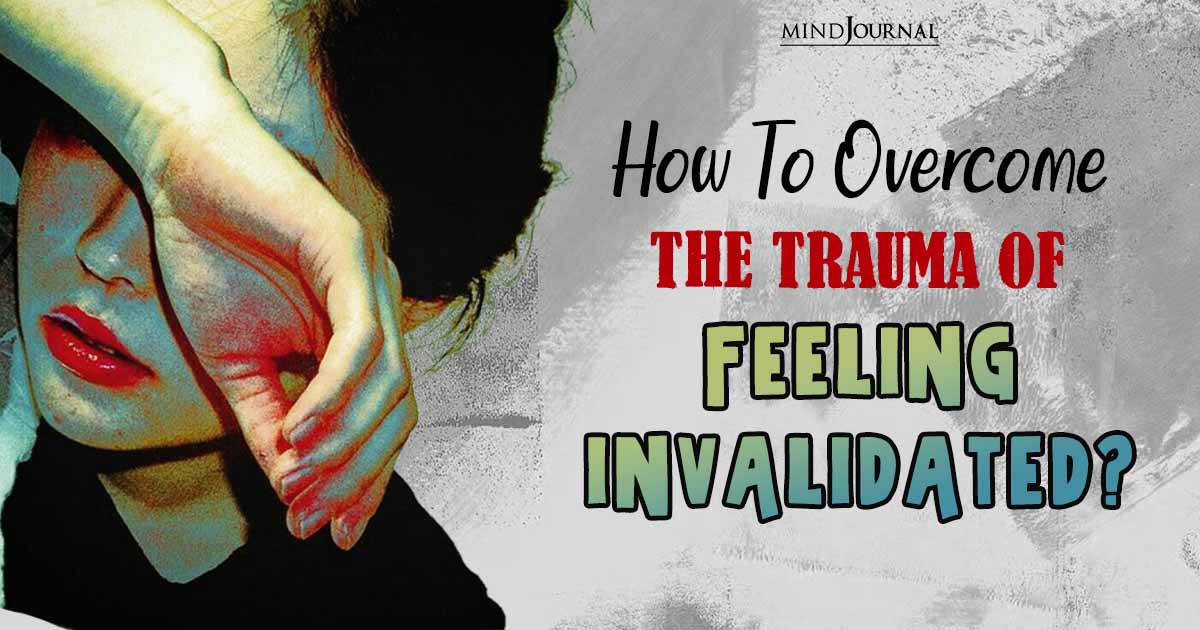Has anyone ever made you feel dismissed and invalidated when you have shared your traumatic experiences with them? The trauma of feeling invalidated is one of the worst feelings to experience in this world. When your trauma is invalidated, you feel lost, alone and betrayed. So, how to overcome the trauma of feeling invalidated?
According to Bessel van der Kolk, trauma happens when we feel unseen or unknown. He wrote one of the most seminal books on the subject, The Body Keeps the Score.
I’m currently reading another influential book called Trauma and Recovery by Dr. Judith Herman. Here she wrote about complex PTSD back in 1992.
In Herman’s book she also lays out how Freud determined through case studies that women’s “hysteria” was due to sexual abuse before adulthood.
However, because his findings revealed sexual violations against girls and women were “endemic”, he quickly backtracked. This, in response to society’s unwillingness to accept the evidence and give voice to the “unspeakable”.
So, instead he started to gaslight his patients to whom he had previously listened empathetically. Most of these women had reported the act of simply being heard healing enough.
He began to suggest that they may have enjoyed or invited the abuse. And in many ways, not much has changed.
Related: How Abusers Use Denial to Excuse Themselves and Blame Others
The Trauma Of Invalidation
Society and the families within it (which often mirror the culture), have a twisted way of protecting perpetrators of abuse. In an effort to guard themselves from what they don’t want to hear, they discredit the victim.
If you have suffered this insidious type of add-on abuse, you know it can be more traumatizing than the abuse itself.
One client of mine had suffered a sexual assault. When she told her father, he disbelieved her (or pretended to). When asked if her father’s reaction may have been more hurtful than the original trauma, she gave an unequivocal ‘yes’.
This is why many of us feel the need to detach from our families in order to heal. When we find our experiences invalidated, the wound has trouble healing.
However, when we receive the gift of a non-judgmental listening ear (as Freud originally gave his patients), we can recover.

Trauma And Gaslighting
When your traumatic experience upsets someone else’s delusion, you will likely experience gaslighting. This is why family scapegoats find their mere desire to tell the truth so maligned.
Though it may be hard to hear, I also consider the scapegoat the most fortunate member of the clan. Their need for truth and the pain they suffer motivates them to do the hard work of recovery.
The scapegoat remains the one family member who reaps no reward from playing its role. I believe that’s why they seek help and recover more often than the other role players.
The Hero receives adulation; the Mascot gets the laughs; the Lost Child gets left alone; and the Enabler is the glue that holds the family together.
Of course, none of these consolation prizes make up for living a lie to preserve a broken system. However, they do offer something in return for complicity.
Dysfunctional Systems
The scapegoat, on the other hand, receives only shame and blame. As a macrocosm of the dysfunctional family system, institutions create their own scapegoats in the form of whistle blowers.
The one who tells the truth about corruption in the business gets crucified. They usually lose everything including family, friends, finances, homes, and even their lives.
Related: Why Family Scapegoats Become Lifelong Victims?
The Trauma Of Feeling Invalidated
If you have suffered the devastation of having your traumatic experience invalidated, remember these systems will not respond to you speaking louder.
Trying to gain understanding from people invested in your silence is a waste of precious energy. Turn that energy toward yourself and your own healing instead.
Use it as fuel to propel you toward the authentic life you were designed to live.
You can pre-order Laura’s upcoming book, It’s Not Your Fault, that’s coming out on 12th September here.
Want to know more about the trauma of feeling invalidated? Check this video out below!
Written By Laura K. Connell Originally Appeared On Laura K. Connell










Leave a Reply